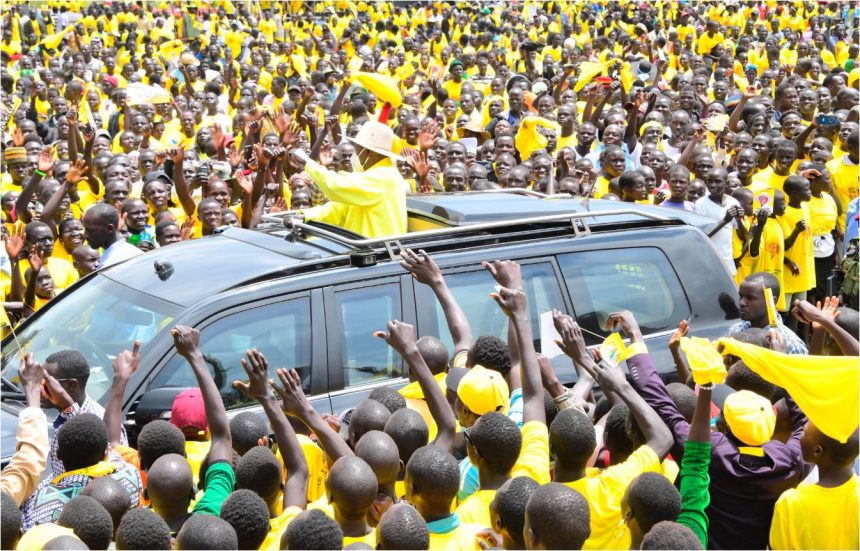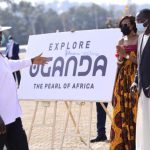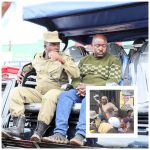Published on 25/10/2025
President Yoweri Museveni has revealed how his government managed to persuade the karacunas—the young Karamojong warriors—to give up cattle rustling and embrace peace and development.
Addressing a rally at Jubilee 2000 Secondary School in Karenga District, Museveni recounted the long and painful journey to disarmament in Karamoja, saying the process began with changing people’s mindsets and showing the youth that peace offered more rewards than violence.

“It was not easy,” he said. “Many of our people had been misinformed about what is important. Some thought that carrying a gun and stealing cows was bravery, but I had to show them that true strength is building a future.”

Museveni praised the efforts of young leaders who helped bring home youths who had crossed into South Sudan to join cattle rustling groups.
“These young women brought me children who had been in cattle rustling,” he said. “When I listened to their stories, I was very sad. Many of their friends had been killed. Those who returned were survivors.”
The President said he personally met many of the former rustlers and took them to other parts of Uganda to see how peace and productive work had transformed communities.
“When they came back, they told others what they had seen. Slowly, the message spread — that there is a better life beyond cattle raids,” he explained.
Museveni also acknowledged the contribution of religious leaders, the army, and the women’s movement in Karamoja, who supported his campaign against rustling.
He explained that one of the biggest challenges was convincing the community that disarmament was possible even if neighbouring regions in Kenya and Ethiopia remained armed.
“Some people said we cannot disarm the Karamojong unless the Turkana, the Ethiopians, and the Somalis are disarmed,” Museveni said. “But I told them, I am not here to disarm the whole of Africa. I will disarm my own citizens, and if the others come to steal, we shall deal with them.”
According to the President, the key turning point came when the government cut off the illegal markets that bought stolen cows cheaply and profited from the chaos. Once that business collapsed, many young men began to abandon the trade.
Museveni said that restoring peace opened the way for development—roads, electricity, schools, and water projects—which have given the former warriors and their families new opportunities.
“When I first came here in 1980, Karamoja had only about 190,000 people. Many were dying because of raids and disease,” he noted. “Now, people are increasing because there is peace. The youth are working, going to school, and building a future.”
He urged the people of Karenga and Karamoja to remain vigilant and continue embracing government programs in education, agriculture, and infrastructure.
“Peace is the foundation of everything,” Museveni said. “Now that we have peace, let us build wealth and transform Karamoja.”






